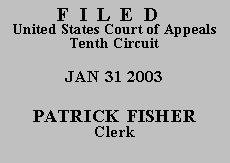

| UNITED STATES OF AMERICA,
v.
THOMAS O. MARTIN |
D.C. No. 01-CR-40116-01-JAR (D. Kansas) |
I. BACKGROUND
After sundown on May 22, 2001, two police officers in Topeka, Kansas saw a car parked by the side of the road. One of the officers observed at least one car crossing into the lane for oncoming traffic to avoid the parked vehicle. Through the car's windows, the officers saw three knives, the largest of which had a blade 8-12 inches long. Entering the vehicle through an unlocked back door, the officers discovered evidence of methamphetamine production.
Mr. Martin was charged with violating 21 U.S.C. §§ 841(c)(1) and 846 (with reference to 21 U.S.C. §§ 841(a)(1) and 841(b)(1)(B)). After his motion to suppress evidence on Fourth Amendment grounds was denied, Mr. Martin entered a conditional plea of guilty to violating 21 U.S.C. § 841(c)(1) and reserved his right to appeal.
II. DISCUSSION
Mr. Martin now appeals the district court's denial of his suppression motion, and he also challenges the district court's enhancement of his sentence under the career offender section of the sentencing guidelines, USSG § 4B1.1. The government does not challenge Mr. Martin's right to appeal his sentence.
In reviewing Mr. Martin's challenge to the denial of his motion to suppress evidence, "we consider the totality of the circumstances and view the evidence in a light most favorable to the government. We accept the district court's factual findings unless those findings are clearly erroneous." United States v. McKissick, 204 F.3d 1282, 1296 (10th Cir. 2000). The district court found that the vehicle in question was vacant and improperly parked on a two-lane road, obstructing traffic and requiring other vehicles to cross into the oncoming lane. "The authority of police to seize and remove from the streets vehicles impeding traffic or threatening public safety and convenience is beyond challenge." South Dakota v. Opperman, 428 U.S. 364, 369 (1976). Moreover, the presence of knives (one virtually a machete) in an unlocked vehicle presented a danger to the public especially, we note, to children who might have happened bythat justified the officers' decision to act. See United States v. Lugo, 978 F.2d 631, 635 (10th Cir. 1992) ("Noninvestigatory searches of automobiles . . . do not offend Fourth Amendment principles so long as such activities are warranted in terms of state law or sound police procedure, and are justified by concern for the safety of the general public who might be endangered if an intruder removed a weapon.").
Mr. Martin also challenges his classification as a "career offender" for sentencing purposes. "A defendant is a career offender if . . . the defendant has at least two prior felony convictions of . . . a crime of violence." USSG § 4B1.1(a)(3). A crime of violence "include[s] the offense[] of . . . attempting to commit such offenses." USSG § 4B1.2, cmt. n.1 (emphasis added). "'[C]rime of violence' [includes] burglary of a dwelling . . . ." USSG § 4B1.2(a)(2) (emphasis added).
Mr. Martin was convicted in Kansas state court of attempted burglary under Kan. Stat. Ann. §§ 21-3301 (attempt) and -3715 (burglary). Because § 3715 applies not only to burglaries of dwellings but to burglaries of non-dwellings and of various means of conveyance, Mr. Martin argues that the district court erred in finding that he had been convicted of a crime of violence. See USSG § 4B1.2(a)(2). When the statute is ambiguous, the district court is permitted to look beyond the statutory count of conviction and limit its examination to "the charging papers, plea agreement or other statement by the defendant for the record, presentence report adopted by the court, and findings by the sentencing judge," United States v. Smith, 10 F.3d 724, 734 (10th Cir. 1993), to determine the nature of the charge.
Mr. Martin was charged with burglarizing a dwelling. Supl. Rec. vol. I, Gov. Ex. 1 (Complaint). That charge was amended to attempted burglary. Supl. Rec. vol. I, Gov. Ex. 3, at 1 (Journal Entry). The record shows no other amendment to the original complaint. Therefore, we hold that the district court did not err in finding that Mr. Martin's conviction for attempted burglary was a crime of violence, supporting enhancement of his sentence under § 4B1.1.
III. CONCLUSION
For the reasons stated above, we AFFIRM the denial of the defendant's motion to suppress, and we AFFIRM his sentence as a career offender.
Entered for the Court,
Robert H. Henry
Circuit Judge
*.This order and judgment is not binding precedent, except under the doctrines of law of the case, res judicata, and collateral estoppel. The court generally disfavors the citation of orders and judgments; nevertheless, an order and judgment may be cited under the terms and conditions of 10th Cir. R. 36.3.